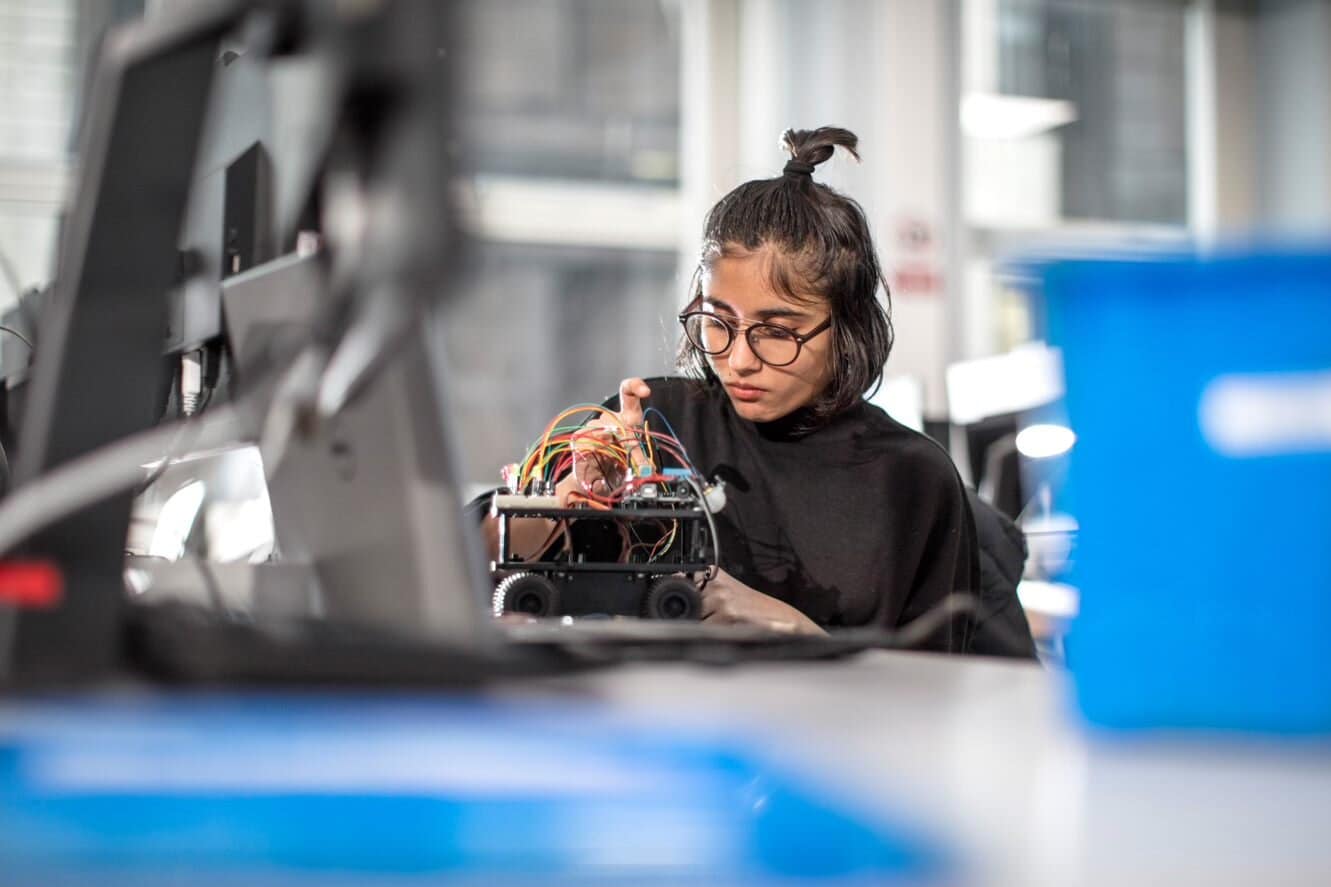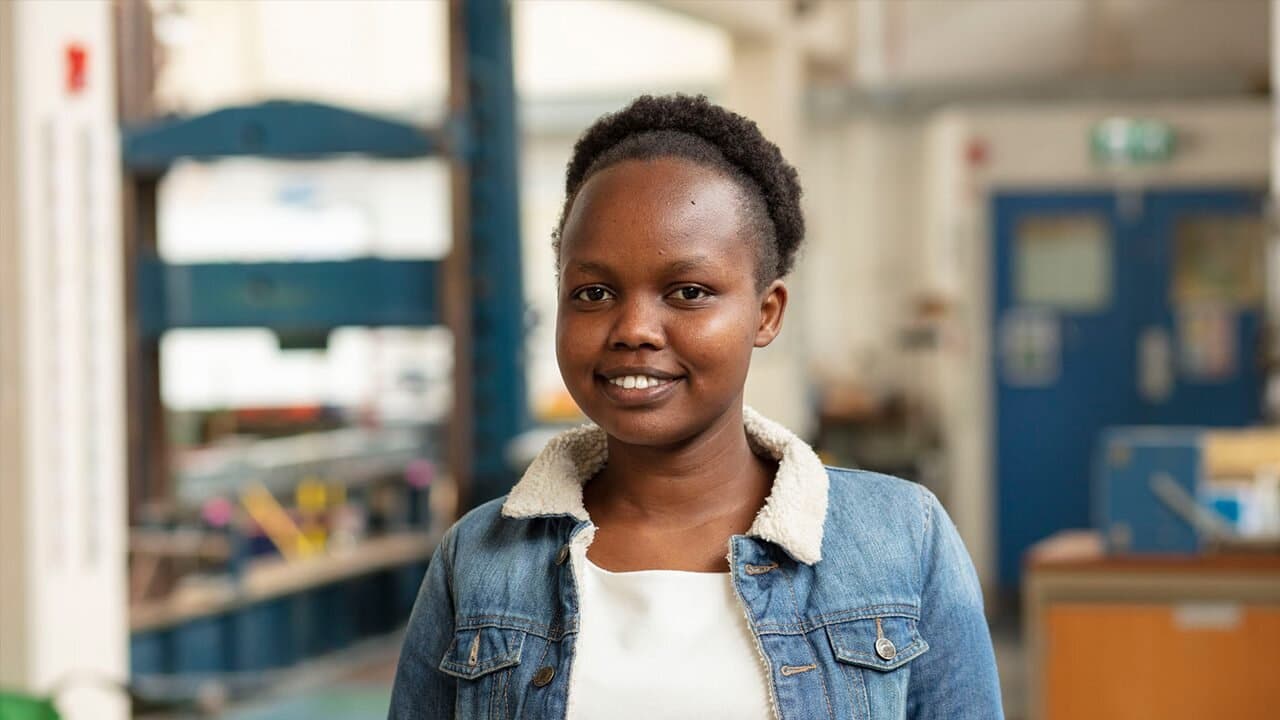The market for engineering talent is still hot. In the UK alone, there is a shortage of approximately 20,000 engineering graduates per year. With Industry 4.0 looming, more will be called upon to meet the challenges of a technological revolution that will fundamentally alter the way we live, work, and relate to one another.
The University of Plymouth has been filling this gap since its origin over 150 years ago. Situated in a thriving waterfront city at the heart of the stunning South West, the University of Plymouth’s School of Engineering, Computing and Mathematics has been producing some of the world’s best engineers.
Since then, its reputation for excellence in teaching and research have gone from strength to strength. Every day, SECaM students are learning from the best through interdisciplinary research, experiential education and civic engagement.
And they do so in state-of-the-art facilities that inspire and shape their learning. The SECaM is home to the Marine Building, which contains a world-class Coastal, Ocean and Sediment Transport (COAST) Laboratory and Navigation Suite. Whereas the High Performance Computing (HPC) cluster provides the power to tackle research in the field of Big Data.
Such features ensure SECaM students evolve into outstanding graduates ready for their careers and the future:

Vietnamese student Minh Chu Hong poses on a bridge by the sea in the UK. Source: University of Plymouth
Minh Chu Hong
Minh Chu Hong was working for a mobile communication service provider when he realised he needed to open up his career. The University of Plymouth’s MSc Electrical and Electronic Engineering stood out to him for its “high ranking for electrical engineering” and for offering the specialisation that Minh was interested in.
Today, Minh is responsible for setting up an entire mobile phone network in his home country of Vietnam. “After completing my master’s I worked for Alcatel-Lucent for a year, responsible for deploying and building an EVNT CDMA network in the north of Vietnam,” he says. “I then moved to Beeline, who I now work for as an Instrument and Control (I&C) Project Manager, controlling a project to deploy and install an all BSS and transmission network in north and central Vietnam.”
The master’s programme has not only provided Minh with opportunities to investigate, analyse, and solve problems — it has allowed him to think independently, discuss widely, and persevere in seeing his final project to its completion.

Ishita Parekh won a scholarship to pursue her engineering dreams at the University of Plymouth. Source: University of Plymouth
Ishita Parekh
India-born Ishita Parekh felt like she was on top of the world when she won the British Council scholarship to study robotics at the University of Plymouth. “The UK was my first preference for studying robotics because of the excellent teaching facilities on offer,” Parekh says. “I got offers from all of the universities I applied to but chose the University of Plymouth because of the course content. The CRNS (Centre for Robotics and Neural Systems), a dedicated research centre for robotics on the University campus, attracted me to pursue my master’s here.”
Parekh had always been interested in mathematics, electronics, computing, cars, and humanoid robots. Her passion for building machines was kindled when she worked with Jaguar Land Rover, where she had the chance to tinker with actual models on a daily basis. “This helped me to discover my passion for building machines for the betterment of people,” she says. “And that’s why I chose robotics for my master’s studies!”
At the university, where Parekh studied MSc Robotics, she had everything she needed. There was no shortage of resources — 24/7 access to the library and societies where she can join to make friends. “I approach my lecturers frequently when I have doubts. They are always there to listen and help to answer any questions I have,” she adds.

Joylyn Cherotich is obsessed with structural engineering, which is why she found herself enrolling for MSc Civil Engineering at the University of Plymouth. Source: University of Plymouth
Joylyn Cherotich
Kenyan native Joylyn Cherotich’s dream was to be a structural engineer. From a young age, she had been fascinated by the world’s tallest buildings and structures. This budding interest turned into a full-fledged passion when she pursued a course in civil and structural engineering at a university in Kenya.
“After I had completed my undergraduate degree in Kenya, I wanted to pursue a postgraduate programme which would give me the confidence to practise in the field,” she says. “I had a chance to visit the University of Plymouth and immediately knew that this was the place that would mould me into the engineer I have always wanted to be,” Cherotich says.
At present, the MSc Civil Engineering student is focusing on her research project and researching the use of recycled aggregates in the marine environment. “When I finish my MSc, I am planning on doing a two-year graduate scheme programme to gain some field experience before returning to Kenya,” she says. “My end goal is to set up my own consultancy firm there.”

Pictured above is Malaysian-born Nur Roszi at the University of Plymouth. Source: University of Plymouth
Nur Roszi
Nur Roszi had always wanted to be a coastal engineer. When she saw the University of Plymouth’s MSc Coastal Engineering programme, she applied almost immediately.
“The programme has given me the opportunities to discover which area of study I wanted to pursue in my career, in the perfect location — ‘Britain’s Ocean City.’ The university’s Coastal, Ocean and Sediment Transport (COAST) Laboratory facilities are very comprehensive and easy to access,” she says.
“After I graduate, my ambition is to become a coastal engineer who focuses on sustainability. As an engineer, I will be able to help change the world with inventions and solutions that affect everyone’s lives. Working with the COAST lab on the programme has been instrumental in helping me move closer to securing this ambition.”
Toby Naylor
Toby Naylor’s path to the MSc Offshore Renewable Energy was inevitable. Passionate about the interface between the marine environment and renewable energy, he took as broad a module choice as possible so he could contribute towards the progress of renewable energy.
“I loved that I had the choice to take such a diverse range of modules, each offering their own range of skills and experience to be absorbed,” he says.
For his research project, he looked at the impacts of the three offshore wind farms in North Wales on coastal seabird populations. He would later focus on something else: enhancing wave modelling techniques by modelling multiple wave energy absorbers as a single obstacle, eventually modelling the world’s largest offshore wind farm (Hornsea Two) to assess potential changes to nearshore wave dynamics. “While the modelling itself wasn’t related to my current role, it showed that I was able to take on a subject (modelling) entirely unfamiliar to me before the MSc course started,” says Naylor.
Shortly after graduating, he joined Ørsted, the world’s largest offshore wind farm developer, as an Environment and Consents Professional. “I believe everyone’s role is making a difference to the world, but it’s coming to terms with the fact that you may be a small cog (like myself) in a very large machine that’s important,” he says. “I’m fortunate enough to say that the machine I work in (Ørsted) genuinely has ‘creating a world that runs entirely on green energy’ as its vision and has a real potential to do so.”
University of Plymouth International College
Want to study one of the university’s master’s programmes but think you may not meet the entry requirements? The University of Plymouth International College (UPIC) may be able to help you!
As an associate college of the university, UPIC offers pre-Master’s foundation programmes that can lead you directly onto MSc programmes within the School of Engineering, Computing and Mathematical Sciences. The pre-Master’s is a one-semester long programme (three months) focusing on three main areas:
i) Critical Thinking for Postgraduate Study
ii) Interactive Learning Skills and Communication
iii) Research Methods for Postgraduate Study
More than 90% of UPIC students complete their pre-Master’s successfully, and then more than 90% go on to complete their Masters successfully. Apply online today!
Follow the University of Plymouth on Facebook, Twitter, YouTube, Instagram, Pinterest, SnapChat, and LinkedIn













